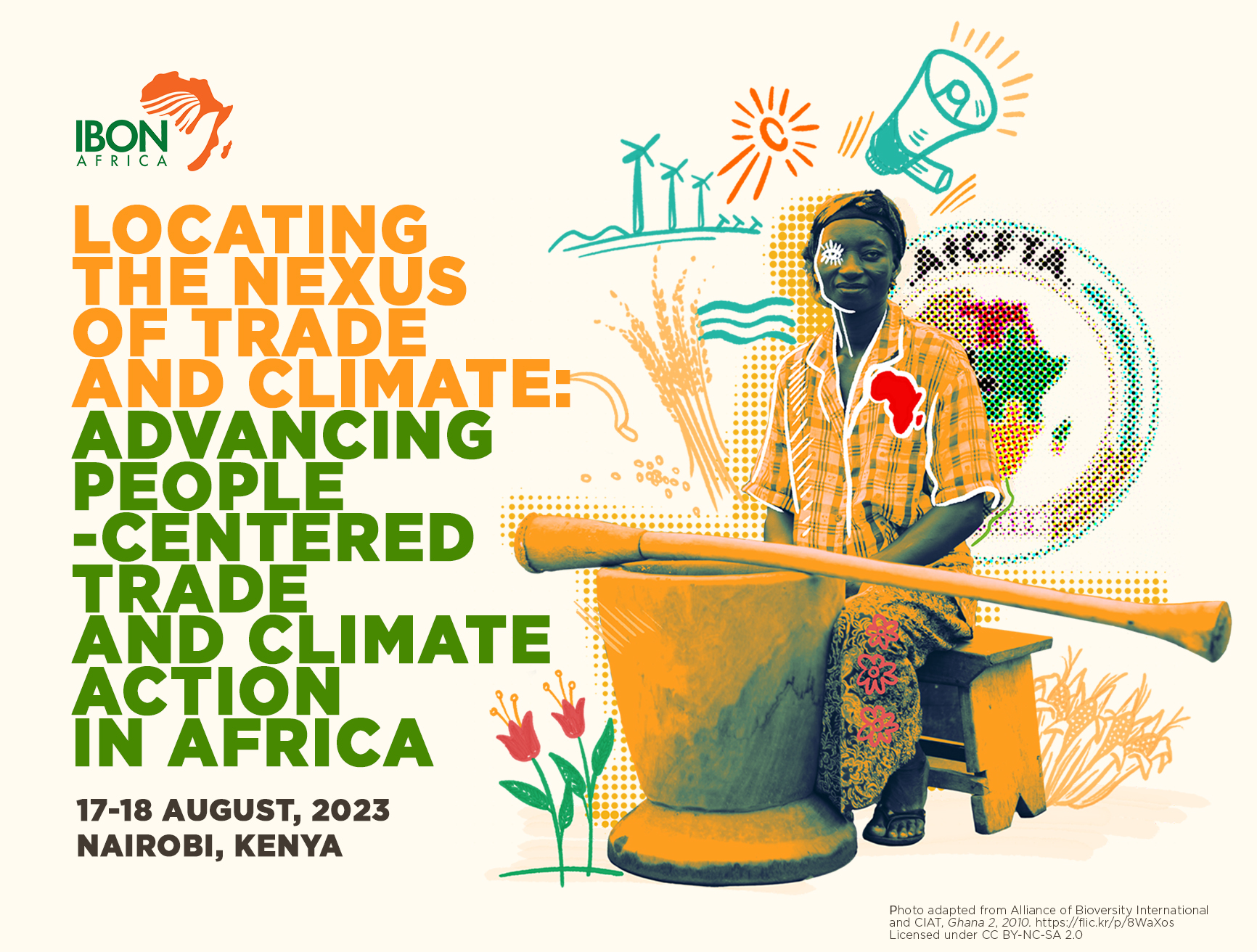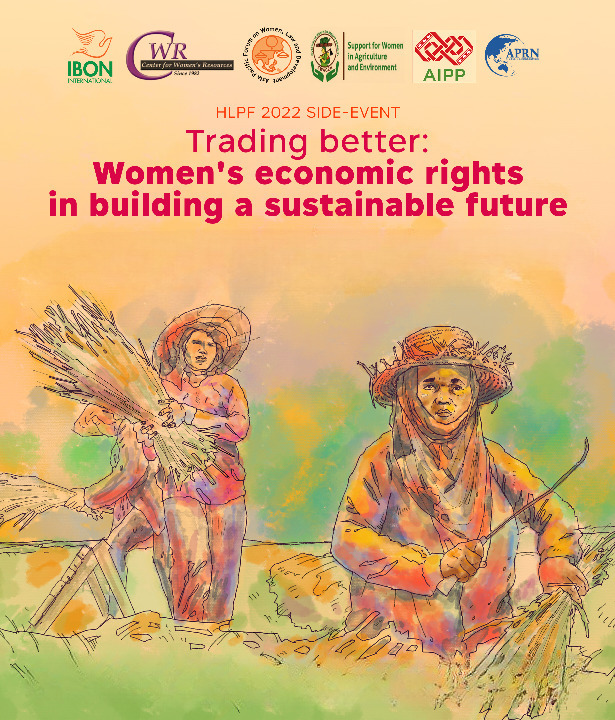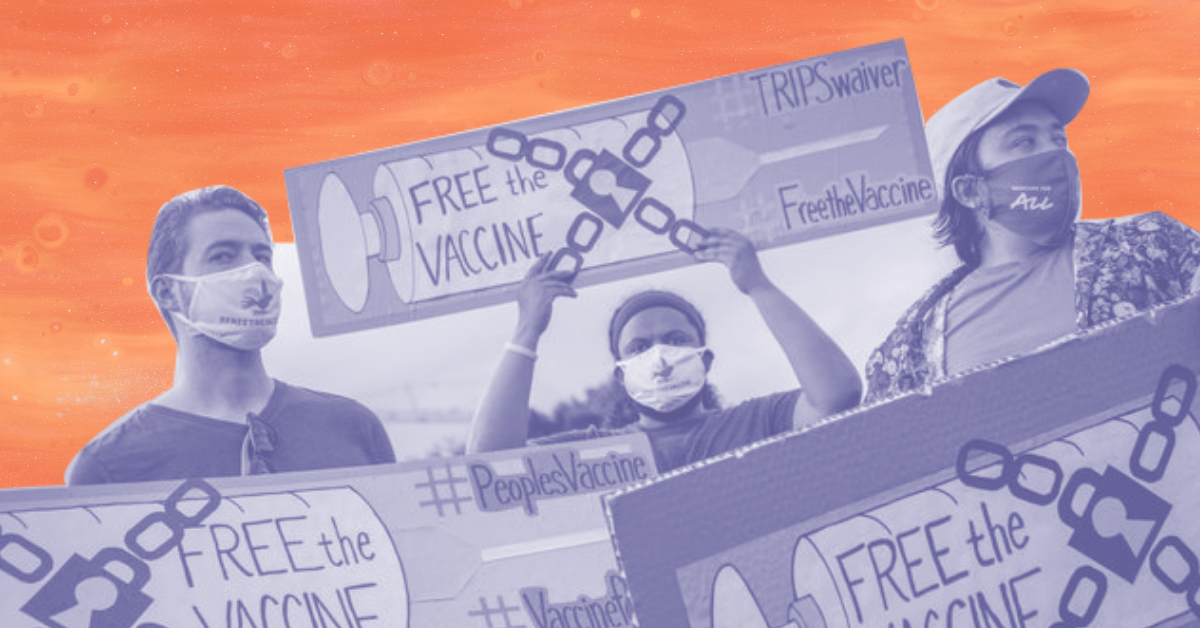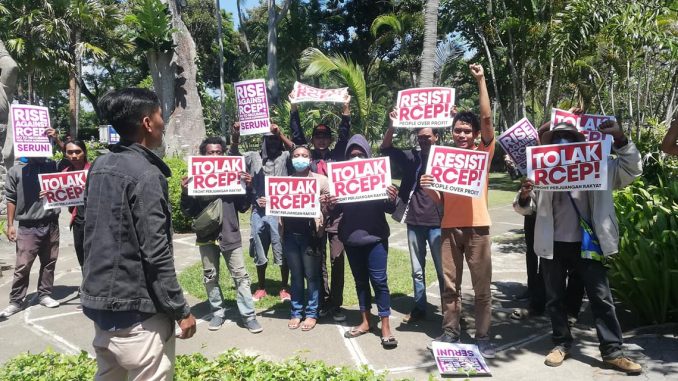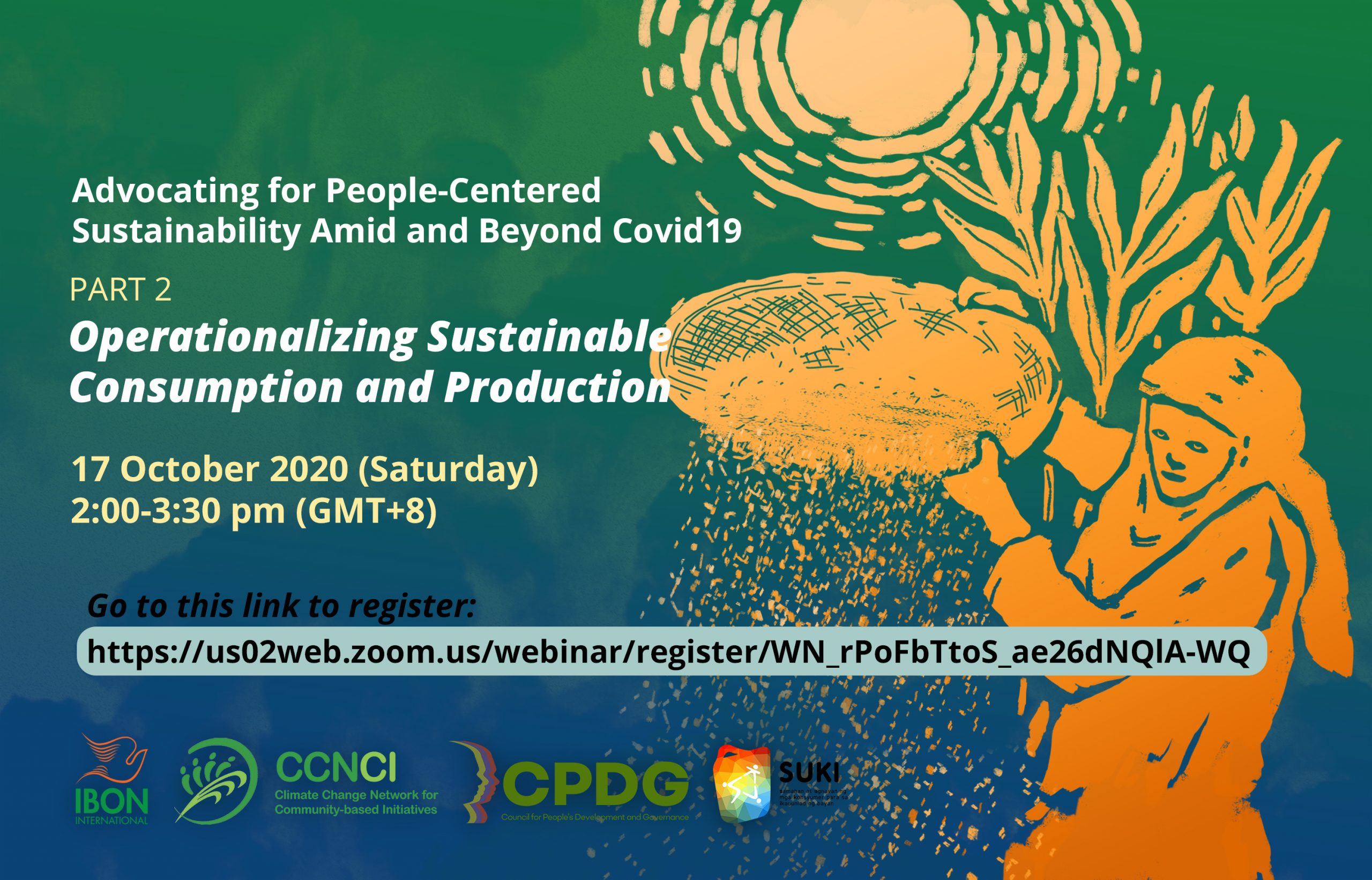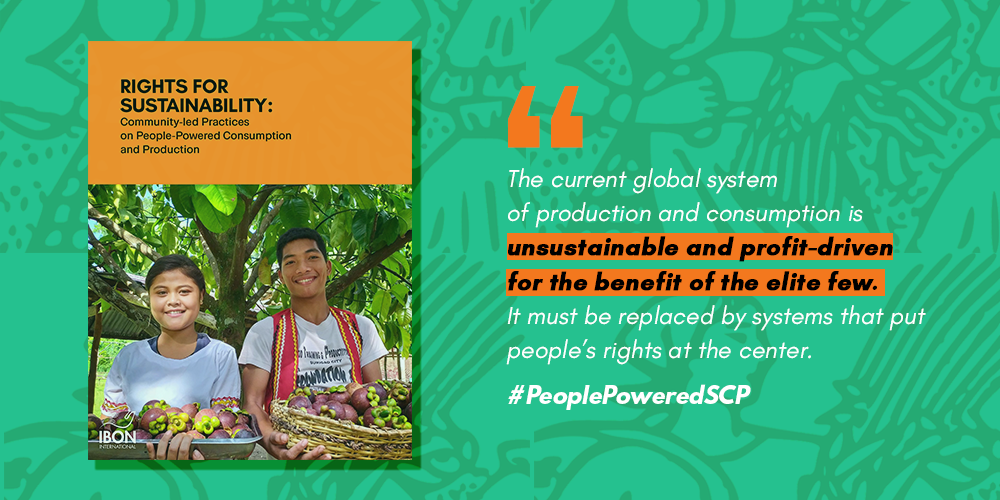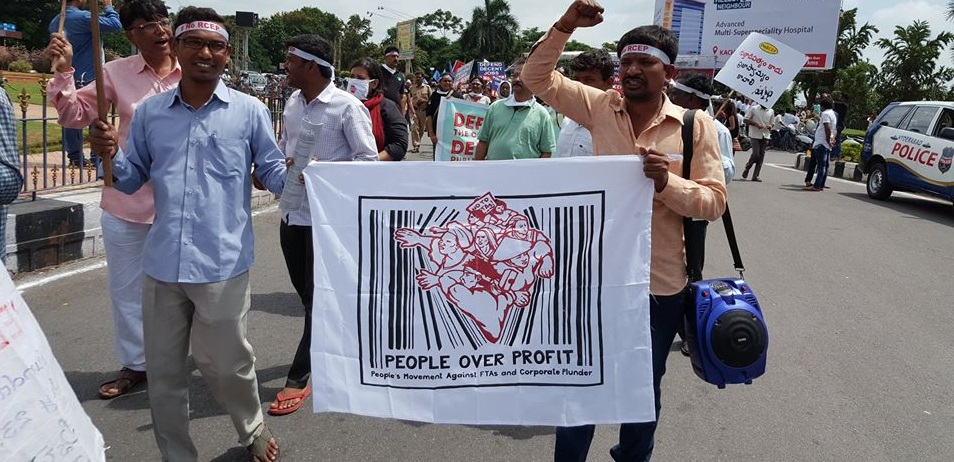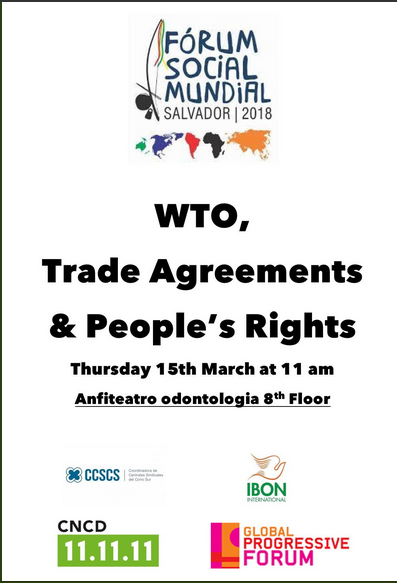By Rodolfo Lahoy
IBON International Update / 13th Ministerial Meeting of the World Trade Organization
Abu Dhabi, UAE, February 27 – The 13th Ministerial Conference (MC13) of the World Trade Organization (WTO) opened Monday in Abu Dhabi, United Arab Emirates. This year’s conference marks a WTO approaching its 30 years of operations in less than a year, by January 2025. Two months after MC13, the WTO’s Marrakesh Agreement signed in April 1994, which established the organisation, will also turn 30.
Buzzwords abound in MC13, deployed to advance dangerous agenda items. Civil society organisations (CSOs) are fearing the expansion of the WTO mandate for interests of capital, hiding behind a rhetoric of development, the climate, and sustainability. At the same time, civil society warns of the WTO Director-General’s push to “reform” the institution – actually reshaping it to erode even the nominal bargaining capacity of Southern states in negotiations. As early as the eve of opening day, civil society is concerned about how their role, of speaking out, is being threatened.
First, they came for civil society…
In the recent climate talks in Dubai, repressive tactics were used amid supposedly clear rules for civil society spaces. In MC13, even these rules are opaque. Security in Abu Dhabi is uncomfortable with banners, placards, and actions. The problem is supposedly the Director-General’s weakness in pushing clear protocols for civil society with the MC13 host country.
On the eve of MC13, CSOs part of Our World Is Not For Sale (OWINFS), including IBON International, were followed by security and advised for safety reasons to exit premises as they distributed an OWINFS position paper to policymakers. Some were searched and their papers taken away. One individual was prevented entry due to a Palestinian keffiyeh, considered politically sensitive by authorities.
On opening day, a farmer-activist from India was detained for two hours for distributing a position letter on agriculture at the WTO press room. Distributing leaflets will be subject to arrest, according to inside information from authorities. This has not happened even in recent Ministerials with streaks of repression such as in Buenos Aires (2017) and in Geneva (2022).
The civic space issue is emerging as a tactical struggle this week. Silencing critical civil society in MC13 could spell harsh implications for any future Ministerials. According to a collective OWINFS letter addressed to the current WTO Director-General Ngozi Okonjo-Iweala, “The WTO talks of inclusivity, yet what we have seen to date suggests our voices will be silenced throughout this ministerial.”
Undemocratic practices were marked even at member state-level – with state delegations advised not to take the floor in the opening session. In a special meeting of the WTO General Council days before, the Director-General, a Nigerian but also a US citizen and a former Managing Director of the World Bank, called out India and South Africa to pressure a reversal of their opposition to an investment facilitation initiative.
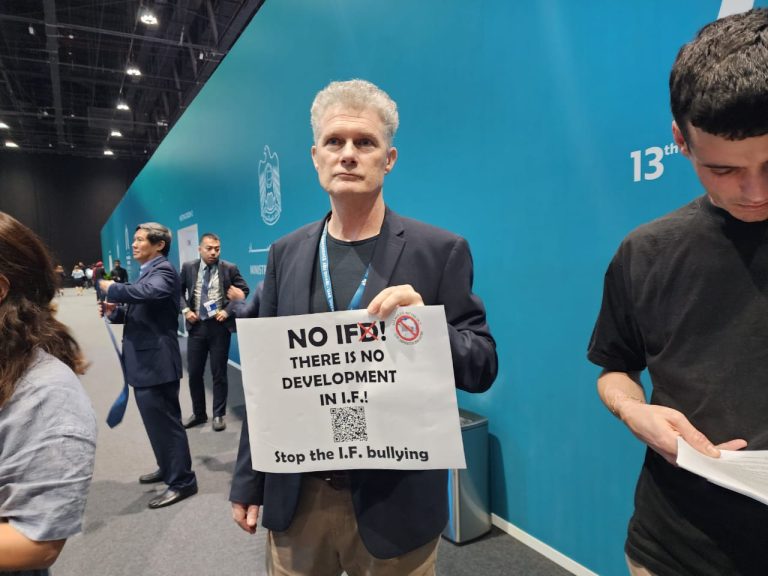
The big IF
For social movements and critical civil society, decades of the WTO have served to implement policies of neoliberal globalisation — of opening up the markets and Southern countries for resource extraction and the erosion of people’s rights, for the super-profits investment of corporations and rich countries.
Now, South Korea, the United Kingdom, the European Union (EU), but also the developing country China, together with the WTO Director-General, are all supporting the Investment Facilitation for Development (IFD). The US has not formally joined the initiative due to China, but also will not block it in line with US corporate interests. The eve of opening day, the WTO announced that three-quarters of its members have agreed on the IFD. Director-General Okonjo-Iweala lauded the IFD as an achievement.
All typical turns of phrase were used in packaging the IFD agenda. Attracting foreign investment into the global South, Southern integration into global value chains, are “catalysts” for sustainable development.
According to one state minister: “When some have questions on WTO’s response to the current poly-crisis, we, the 123 co-sponsors, answer with the IFD Agreement.” In the WTO Director-General’s words, this is about “re-globalisation” with diversification of supply chains.
However, civil society and critical academics are asserting that the basic narrative is just mistaken. Even the UN Conference on Trade and Development (UNCTAD) is critical of the overarching value chain narrative, amid global realities. According to the UNCTAD: “The success of [the GVC] model has been neither uniform nor certain…[with] immediate gains in output and employment are unlikely to translate into a dynamic move up the development ladder” unless Southern countries can capture surplus in GVCs for domestic reinvestment.
Instead, the corporate private sector has maximized the pandemic and crises for more profits – also as they have controlling roles in production networks. For the UNCTAD, the rise in corporate profits, “together with their growing concentration, is a driving force exacerbating income inequality.” If this is the case, then is the reliance on big foreign direct investment for development a rather weak case? Arguably this remains an “if and then” logic incoherently pushed under the IFD agreement.
WTO “reform” by strong-arming a corporate agenda
The Investment Facilitation Agreement was advanced as a joint statement initiative (JSI), a plurilateral agreement, meaning a separate discussion among certain groups of countries at the sidelines of WTO. This type of advancing negotiations is called by the WTO leadership as part of “reform[ing] by doing.”
But do what, exactly? Countries with the interest of extracting more profits use JSIs to create negotiation blocs on items they wish to advance. These countries use JSIs as means to strong-arm countries amid the supposedly consensus-based rules in the WTO. With JSIs, a pandora’s box is opened: rich countries can start discussions on any agenda item, then talk about trying to get “agreement” within the rest of WTO.
This is what happened in the investment facilitation. Historically, a mandate to talk about investment was rejected twice at the WTO. So-called joint discussions in Buenos Aires, which would later be known as the JSIs, opened up the talks on investment facilitation, with formal discussions beginning in 2020. Now, co-chaired by South Korea, the investment facilitation agreement is at risk of being incorporated through “consensus” at MC13, unless opposed by some developing countries. As it is, there is the carrot of the investment myth and the stick of powerful countries’ and the Director-General’s push.
Worse, JSIs are still being discussed in e-commerce and in the domestic regulation of services, towards a similar liberalization agenda. Through a JSI on trade and gender, the WTO even instrumentalises gender concerns to promote corporate interests, while completely disregarding the impacts of its policies on women’s rights, livelihoods and access to essential goods and services, especially in the global South.
No sustainability without structural transformation
In short, rich countries’ priorities remain powerful in MC13. In contrast, civil society is conscious that past and present discussions on fisheries subsidies, agriculture, e-commerce are still undermining workers, small farmers, fisherfolk, and local communities. For instance, developing countries are still being prevented from fully accessing and using the tools used by the rich countries for their development, such as subsidies for strategic sectors, advancing industrial policy, and even taxing their own economies.
The Southern state development agenda, or the Doha development round of negotiations, remains in limbo, at best. Blanket integration into global value chains eroded people’s sovereignty over our own economies. Prospects of advancing national and sustainable industrialisation, genuine agrarian reform, public regulation over trade and investment, are increasingly impossible. Southern policy space to shift to sustainable production and consumption patterns, through democratically-owned development strategies, are increasingly barred as inconsistent with the WTO’s reduction of trade barriers. Southern countries have been made dependent on external markets, hollowing out domestic agriculture in the global South, and driving exports and extraction of natural resources.
These realities of political economy are missed in the organisation’s narrative on sustainability and climate. Northern countries have appropriated not only the carbon space but also the natural resources and labour of the global South, gaining at least USD 152 trillion across decades from cheapening prices of exports and lower wages. Sustainability and ecological development are inconsistent with a trade regime that sustains resource plunder (e.g., of critical materials) and dependence on commodity exports. For these reasons, among others, critics say the WTO is an illegitimate space to expand in climate and sustainability.
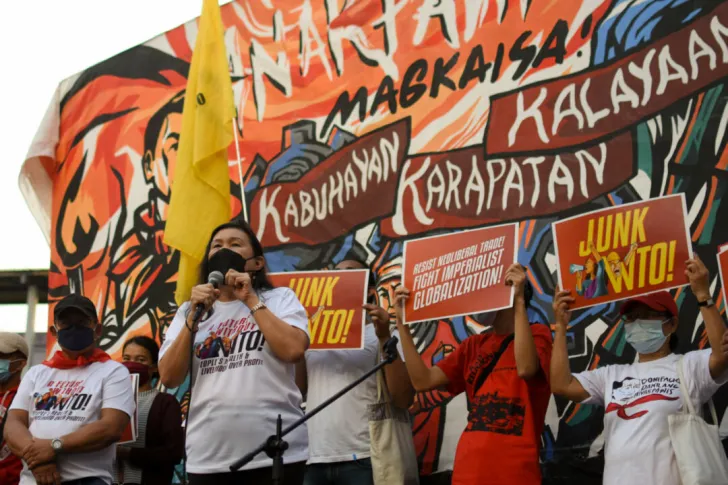
Reforming the unreformable?
The situation at the MC13 opening day validates social movements’ long-standing critique of the WTO: that it merely integrates the global South into exploitative economic relations, while barring economic democracy, under the monopoly capitalist system. The threat of expansion of the decades-old agenda under new issues, under the masks of “reform,” sustainability, and gender, tend to be changes inherently in favour of Northern interests.
Inside the WTO talks, the next days are expected to see concerns and developments on issues of fisheries, agriculture (e.g., the public stockholding of food in countries), on the moratorium on e-commerce duties (e.g., taxing technology monopolies’ goods, sovereignty over digital technology). For some civil society organisations, as things stand, having no final outcome document at the end of MC13 is no loss for the global South.
Outside the trade talks, farmers in India have been engaged in protests in a “quit WTO day,” with demands to support domestic agriculture. Social movements in the Philippines protest the threat of greater foreign ownership of the economy under a state-pushed constitutional change. Both, at the end of the day, deal with national challenges due to the long-running impacts of WTO norms in the global South.
Amid the shrinking spaces at MC13, what options might be there in the long run? For IBON International, amid the repressive context, “Any rhetoric of development or sustainability in the WTO is fundamentally incoherent and impossible if civil society voices, especially from the South, cannot even raise the concerns and narratives of their peoples and constituencies.” One provocative notion, but perhaps valid: the WTO’s best response to the poly-crisis is not to expand on investment facilitation, but to cease to exist in order to open up other, more democratic possibilities to advance trade, development, and systemic changes.
Social movements have long been pointing to the need for a world without the WTO. Today is a good time as ever for the world to stand with social movements and people’s organisations who have been calling for the junking of the WTO and its neoliberal trade agenda. #



